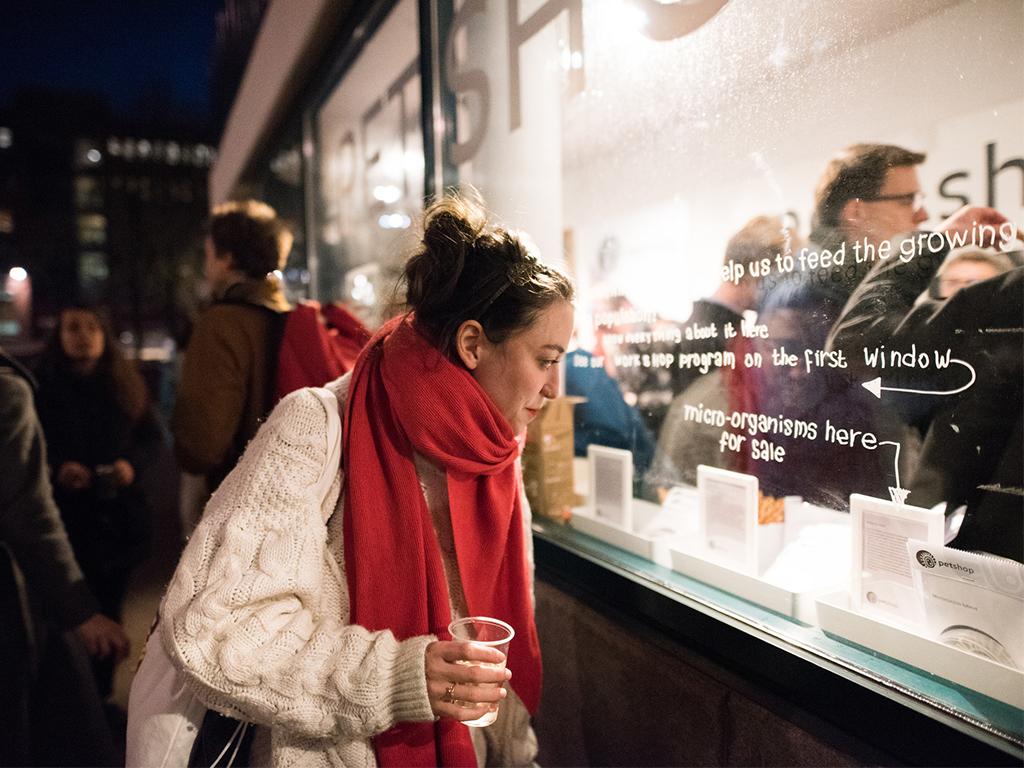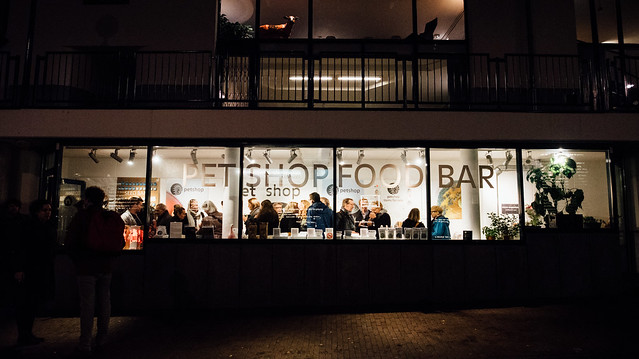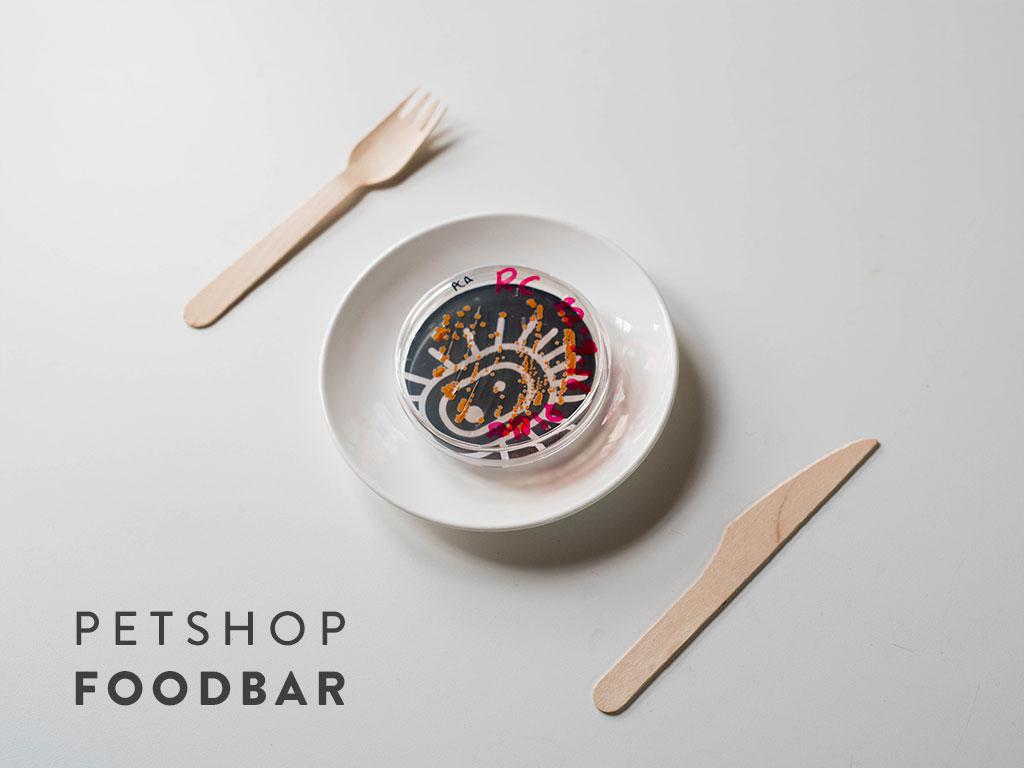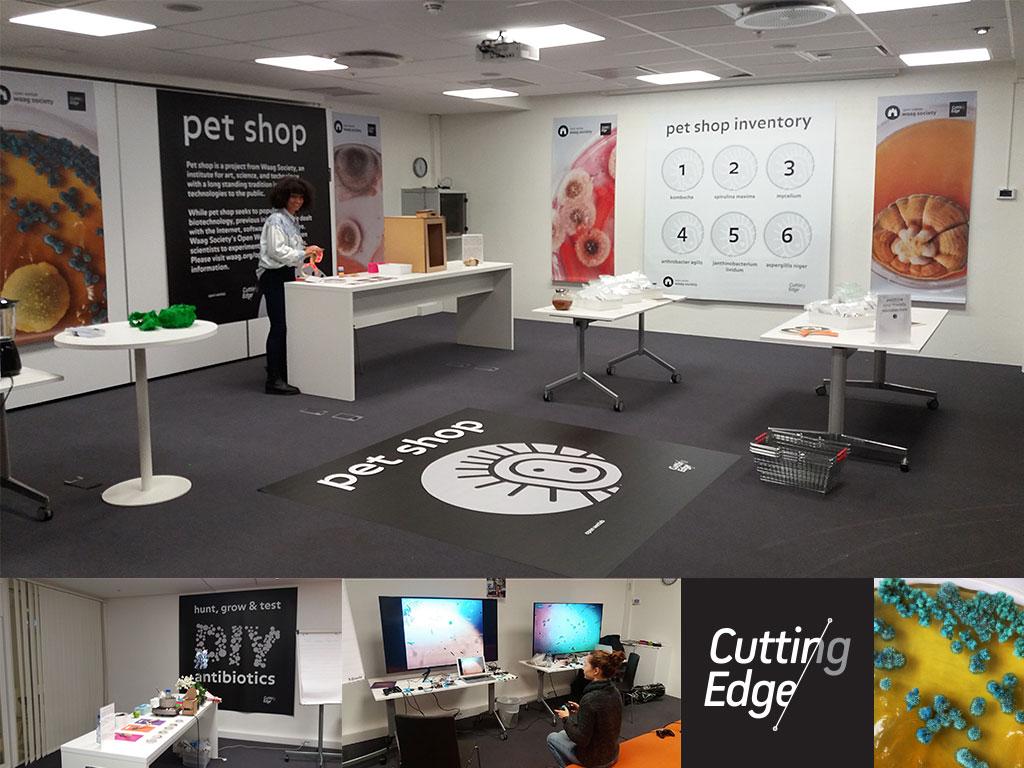Last week we opened the 4th incarnation of the Pet Shop in the city centre of Amsterdam: the Pet Shop Food Bar. In this pop-up food bar we focus on the potential of our little friends - the microbes, bacteria and algae - for our future food.
This specific interest in food is fuelled by a recent European project called Big Picnic, a collaboration between Waag and 15 botanical gardens that focuses on food security. Food and the availability of food is an urgent issue, and the project made me wonder what I really know about our food and food systems.
I only recently learned from a presentation by the University of Wageningen that in Europe in 2014 55 million people were not able to afford a regular quality meal every other day. Which refers to the inability to afford a meal with meat, chicken, fish or vegetarian equivalent. This is based on data from European Federation of Foodbanks. Which is a shocking number. In the Netherlands that means 2,2% of the total population, but in a country as Bulgaria – which is one of the BigPicnic partners - this is 36,8% of the population.
The often considered strategy is to increase food production. But today the world already produces 17% more food per person compared to 30 years ago - based on figures of Oxfam Canada 2015. So that’s no solution. This is illustrated by on of the BigPicnic partner, the Tooro Botanical Garden in Uganda. Surprisingly the biggest issue they face in Uganda is not food scarcity, but food waste. The problem is that, globally speaking, food supply does not always end up where demand is but where it is most economically profitable.
So can you solve a problem within the same system in which it was created? Or should we look for alternative strategies? And focus especially on is what it is that we can do ourselves, with new, DIY inspired approaches. How can we improve the quality of food we grow locally? Can microbes help, for instance to fertilize the soil? Can algae be a locally produced superfoods? Can the use of bacteria and microbes inspire alternatives production methods? But most importantly, how can we empower individuals to do something themselves, hands-on?
Questions which connect really well with the overall DIY approach of the Pet Shop initiative. And with the way Waag works in general, trying to open up closed systems. From the BigPicnic perspective we see this as a first proposal to connect three different worlds, that of DIY biohacking, the rich knowledge of botanic gardens all over the world and the societal challenge of food security.
And I think it is great we can do this with the Pet Shop Food Bar at a visible and accessible location, even for people who are not (yet) aware of any of these questions, right in the city centre of Amsterdam. By looking through the windows people might be triggered to explore the potential of our collection of bacteria, fungi, and algae or join for one of the workshops and events, including a tour through the neighbourhood, that will inspire new approaches.



